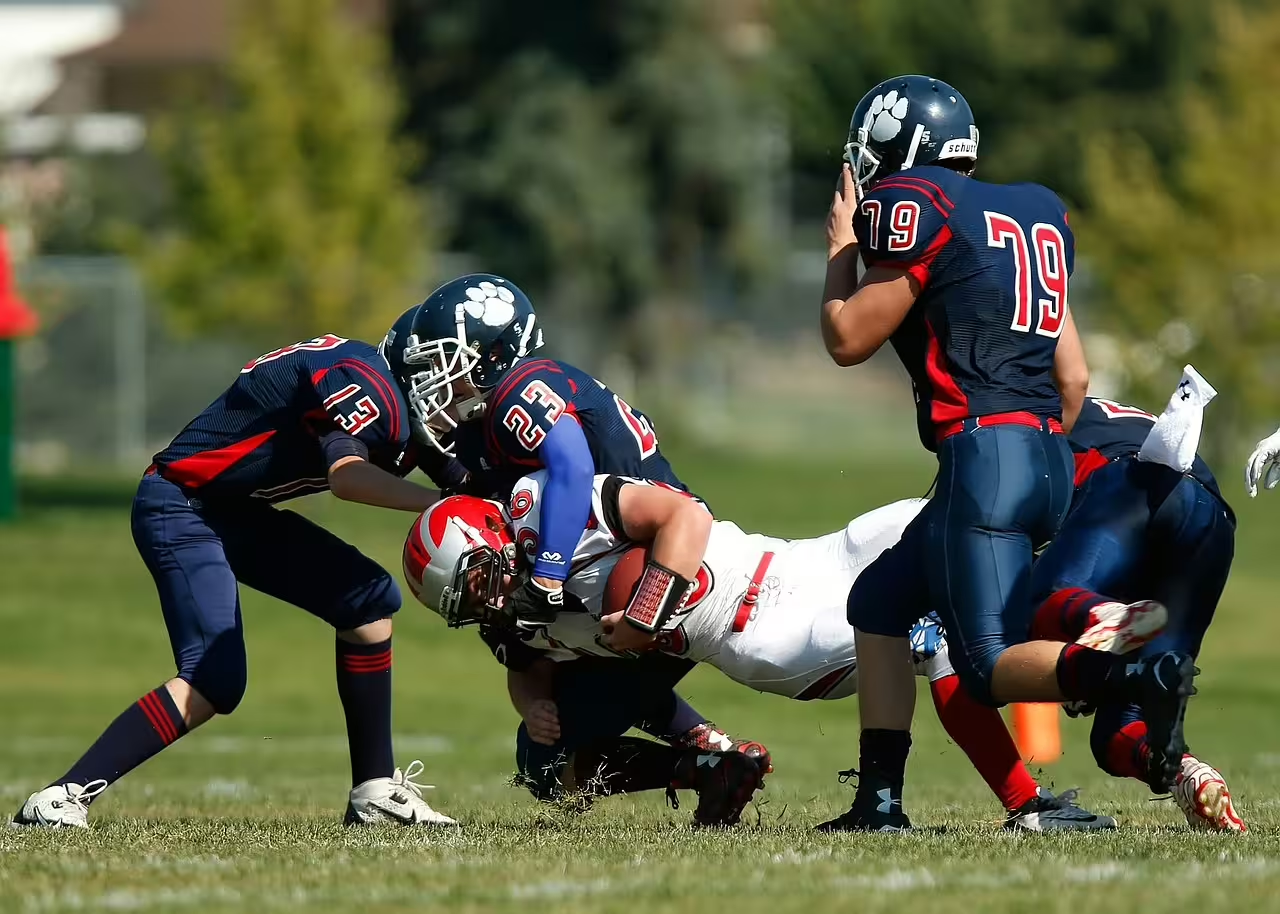In this day and age, parents of young children are taught the value of nutrition from the very beginning. From the moment our children begin to nurse or drink formula, we are told how important proper nutrition is to their physical growth. The same holds true at every stage of their development, from childhood, all the way up to adolescence.
Childhood, in general is a time of tremendous growth, regardless whether or not your child plays sports. If they do play sports, nutrition will become that much more important, not only fueling their everyday life and long-term health, but becoming a cornerstone of their athletic performance and recovery. Thus, many parents, however informed they might already be, might find themselves asking some pertinent nutritional questions as their children grow.
In this article, we aim to answer some of the most common questions that parents have when it comes to sports and nutrition. We will teach you what your child should eat before and after practice, how much hydration is actually needed, and whether or not energy bars and shakes are safe for teens. Along the way, we will also cover the essentials of nutrition for adolescent athletes, from daily meals to game-day snacks, so that your kids can grow strong and stay healthy at every stage of their athletic journey.

Why Nutrition Matters
Most parents already have year of childhood nutrition under their belts before their children reach their teen years. Once those years hit, however, expertise of every kind seemingly flies out the window. Few parents are prepared for the rapid physical, mental, and emotional changes that arrive during our child’s teen years. The changes often mount all at once. Not only does a young person gain increased muscle mass, bone density, and height, they simultaneously facie a slew of hormonal changes that will alter their personality, intellect, and emotional stability.
As a result of all these changes, most athletes will invariably require higher calorie and nutrient intake to meet the growth demands their body us making upon them. For those of an athletic disposition, increased athletic performance will also necessitate further intake. This means that skipping meals—as can sometimes happen during their formative years—may leave them thoroughly under-fueled, increasing the risk of fatigue, injury, or slowed recovery. There is also a risk that inadequate nutrition can disrupt hormones, thus affecting menstrual cycles in young women or growth in young men.
Key Nutrients for Young Athletes
Most parents are aware of the main sources of nutrition that children need to grow and stay healthy, but not everyone knows about the three types of fuel needed for young athletes.
Carbohydrates
Carbohydrates are the body’s main source of energy, in sports and in nearly everything else we do. Their main purpose in terms of high-intensity physical exercise is to fuel muscles and replenish glycogen stores when activity is done. The best sources of this are: whole-grain bread, rice, pasta, oats, fruits, starchy vegetables like corn or sweet potatoes. Carbs should be included in all meals but having a bit of extra before and after physical activity can be quite helpful for young athletes.
Protein
Protein is necessary for supporting muscle growth, recovery, and repair. It should be noted that most athletes need slightly more protein than non-athletes. That said, parents need not overload their teens with additional protein shakes or powders to make up the difference. As it happens, the best sources of protein are things your kid will likely want to eat anyway. Lean meats, poultry, fish, eggs, dairy, beans, lentils, nuts, seeds, and soy are all good sources of protein. Like we said, don’t overload on protein at any point, but try to spread it across meals and snacks. This will result in a steadier stream of absorption.
Healthy Fats
Some fats are actually good for young athletes; provided they aren’t coated in candy or deep-fried, that is. This is because healthy fats are crucial for brain health, hormones, and even endurance. Healthy fats include: avocados, nuts, seeds, olive oil, and fatty fish like salmon. Parents should try and incorporate small portions of these fats in their child’s daily meals or snacks.
Vitamins and Minerals
Those three components might be helpful, but they aren’t all that is needed to keep a young athlete healthy. Kids and teens also need a mix of essential vitamins and minerals to be at their best.
- Calcium and Vitamin D: These compounds help to build strong bones and can be found in dairy products, fortified plant milks, and leafy greens. Vitamin D can also be achieved through sunlight exposure—so make sure your kid spends some time outdoors!
- Iron: Iron is critical for oxygen transport in the body. It can be found in red meat, beans, spinach, and fortified cereals. This mineral is especially important for teen girls, who are more prone to iron deficiency during their teen years.
- Electrolytes (sodium, potassium, magnesium): These compounds are typically lost through sweat but can be replenished via balanced meals and healthy snacks like bananas, oranges, and nuts.
- Fluids: Hydration is the key component in all of this. Even the mildest case of dehydration can affect or impair a teen’s athletic performance. Water is and should be the first choice of any parent, but sports drinks can help bolster hydration and replenish certain nutrients such as electrolytes.
Everyday Meal Planning for Young Athletes
One of the main questions parents ask is about what their child should eat every day if they’re training or competing on a regular basis. The answer, as in so many things, lies in balance; though variety and timing do have to be considered.
The Athlete’s Plate Concept
Sports dietitians often recommend something known as the athlete’s plate—which is a visual tool for building balanced meals. The basic concept can be broken down as follows:
- Low training days: ½ plate fruits & vegetables, ¼ plate whole grains, ¼ plate protein.
- Moderate training days: ⅓ plate each of grains, protein, and fruits/vegetables.
- High training or competition days: ½ plate whole grains/starches, ¼ plate protein, ¼ plate fruits/vegetables.
Breakfast
Breakfast is known as the most important meal of the day for good reason. And though skipping breakfast is common in teens, doing this regularly can both tank performance and create a nutritional deficit. Quick breakfast options might be oatmeal with fruit and nuts or whole-grain toast with eggs. Greek yogurt with granola is also good, as are smoothies that include antioxidant and vitamin-rich foods like spinach or berries.
Lunch: Midday Fuel
School lunches often lack balance and nutrition, so parents should be sure to pack extra snacks for their active teens, or else supplement the entire meal with additional whole foods. Some ideas for healthy lunch options include chicken and veggie wraps with whole-grain tortillas, brown rice with stir-fry, bean and cheese burritos, or a heart-healthy turkey and avocado sandwich.
Dinner: Recovery and Growth
End-of-day meals shouldn’t be too heavy but they should include the things a teen needs to restore their energy and repair their muscles. Parents can cook things like salmon with quinoa and broccoli, pasta with lean beef and vegetables, or baked/roasted chicken with sweet potatoes and a healthy salad.
Snacks: The Secret Weapon
Athletes need snacks to maintain energy throughout the day; this is especially true on days when they are practicing or playing in a competition. Good snack options include: home-made trail mix (bereft of candy and extra sugars), cheese sticks with fruit, hummus with carrots for dipping, nut butter on whole-grain crackers, or a reasonably-sized protein smoothie.

Pre-Practice and Pre-Game Nutrition
When it comes to proper nutrition, timing is very important. The section below illustrates some examples of what to feed your young athlete before, during, and after a workout.
3–4 Hours Before
This should be a balanced meal that includes both carbs and protein, but go easy on the fats for this one. Try grilled chicken, rice, and vegetables, a turkey sandwich with fruit, or pasta with marinara sauce.
1–2 Hours Before
A lighter snack will do here. Try out a banana with peanut butter, a granola bar, some yogurt, or a fruit smoothie.
30–60 Minutes Before
This should be a dose of quick energy right before the game. Fruit such as apples, oranges, or grapes can be great for this, but so can pretzels, or the occasional sports bar or chew.
Fueling During Games and Tournaments
Tournaments often involve multiple games in a single day, often with little downtime. The following strategy can keep kids fueled in between the bouts.
Between Games (30–90 Minutes)
Small, easily digestible snacks like crackers, fruit, low-fat yogurt, granola bars, or half a sandwich are good choices here. Don’t give them anything heavy or greasy.
For Longer Gaps (2–3 Hours)
More substantial meals are better here; if time permits. Try a pasta salad with chicken, rice bowl with beans and vegetables, or a wrap with turkey and veggies.
Recovery Nutrition
After a practice or game, recovery is needed. The human body needs nutrients to repair and prepare for the next effort and the best things for this can be found below.
The 30–60 Minute Window
Parents should encourage their young athletes to eat within an hour of activity in order to get the best recovery. This means carbs to replenish energy, plenty of fluids to rehydrate them, and good protein to repair muscles. Chocolate milk is great for this, as are smoothies. But a sandwich can also be a substantial and welcome prize after a busy day or playing.
Hydration Strategies for Young Athletes
Parents often wonder how much water is enough for their teen athletes? The rule of thumb for kids between the ages of 9 and 13 is around 70-8 cups a day. Teens who are aged 14 through 18 need rather more, approximately 8-11 cups. Note that these numbers don’t account for days with increased heat, humidity, or excess exercise. On those days, more water is better. Parents should keep wary of signs of dehydration, such as headaches, dizziness, fatigue, dark urine, and poor concentration/brain fog. Also, try to teach your kids to drink slowly, sipping over time rather than chugging it down all-at-once.

Cultured Athlete Says…
As you can see, nutrition may be the single most important aspect of youth sports that parents have a direct influence in. We can provide positivity, equipment, support, and rides to and from practice, but the most valuable thing we can do is make sure that our kids are properly fueled to engage in rigorous physical activity. By focusing on the essentials and taking time for thoughtful meal planning, adequate hydration, and teaching them healthy habits that they can take with them throughout their lives, we can help our children shine, in athletics, scholastic pursuits, and everything they set their minds to.
Discover more from CulturedAthlete
Subscribe to get the latest posts sent to your email.






